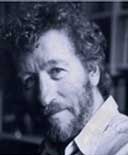My novel on Islam |
There seems to be an almost inevitable irritation when novelists in Britain and America, with their long history of free speech, touch on matters Islamic. I am not the first and probably won't be the last to have ruffled some feathers, though I feel sad about this, because my new novel, A Week in December, is carefully researched, and, among its main characters, presents a hugely sympathetic and loving Muslim family; it is furthermore made clear that the parents' kindness and good citizenship spring not just from being naturally good eggs but from their devotion to the Koran.
The crucial issue, I suppose, that divides Muslims from other religions is the nature of the holy scripture. We Christians and Jews have long accepted that our scriptures were written by humans; indeed, much biblical scholarship focuses on exactly which humans, and when.
For Muslims, after some intra-religious debate, it was agreed that the Koran is "uncreated": this means, as I understand it, that it is literally and in every syllable the word of the Almighty, unshaped (‘uncreated’) by human hand.
When, with some excitement, I first read the Koran last year as research for my novel, I confess that I was disappointed by it. Raised as a child on the exciting stories of the Old Testament and inspired by the revolutionary teachings of the New, I had, perhaps naively, expected something comparable. The Koran has lovely passages, some of which inspire my character Farooq in the novel, but I did find it, from a literary point of view, repetitive.
As for whether it is ethically less developed than the New Testament, a Muslim friend put it to me like this: "You must compare like with like. Compare it to the Old Testament."
That is a fair point. I fully accept that the ethical dimension of modern Islam has been provided by generations of scholars and thinkers over many centuries; it was perhaps too much to expect to find it embedded from the word "Go" – to expect, in other words, that the Koran would be two books, two testaments, in one.
While we Judaeo-Christians can take a lot of verbal rough-and-tumble about our human-written scriptures, I know that to Muslims the Koran is different; it is by definition beyond criticism. And if anything I said or was quoted as saying (not always the same thing) offended any Muslim sensibility, I do apologise – and without reservation.
It was never my intention to offend my Muslim friends or readers, and if you read my novel I think you will see how I have shown the positive effects of the Koran on a kind and typical Muslim family. The family son, Hassan, falls in with bad men and is misled. I can't tell you without spoiling the story whether goodness prevails; but if it does, it is considerably due to the love of his devout parents.
Martin Amis, John Updike and many other Western novelists have written about Islam because it is a challenging and interesting topic in today's world. I can't speak for my fellow writers, but I would be surprised if their aim was, in general terms, much different from my own: to understand, and then to explain. That is the challenge for the imaginative novelist: to inhabit the skin and the thoughts of someone quite different from yourself. I have done this before with people from different times, of different nationalities and of a different sex from my own. There is something of the reporter in most good novelists; our aim, in the end, is always to increase and broaden the reader's understanding, not to inflame a silly prejudice.










Post new comment